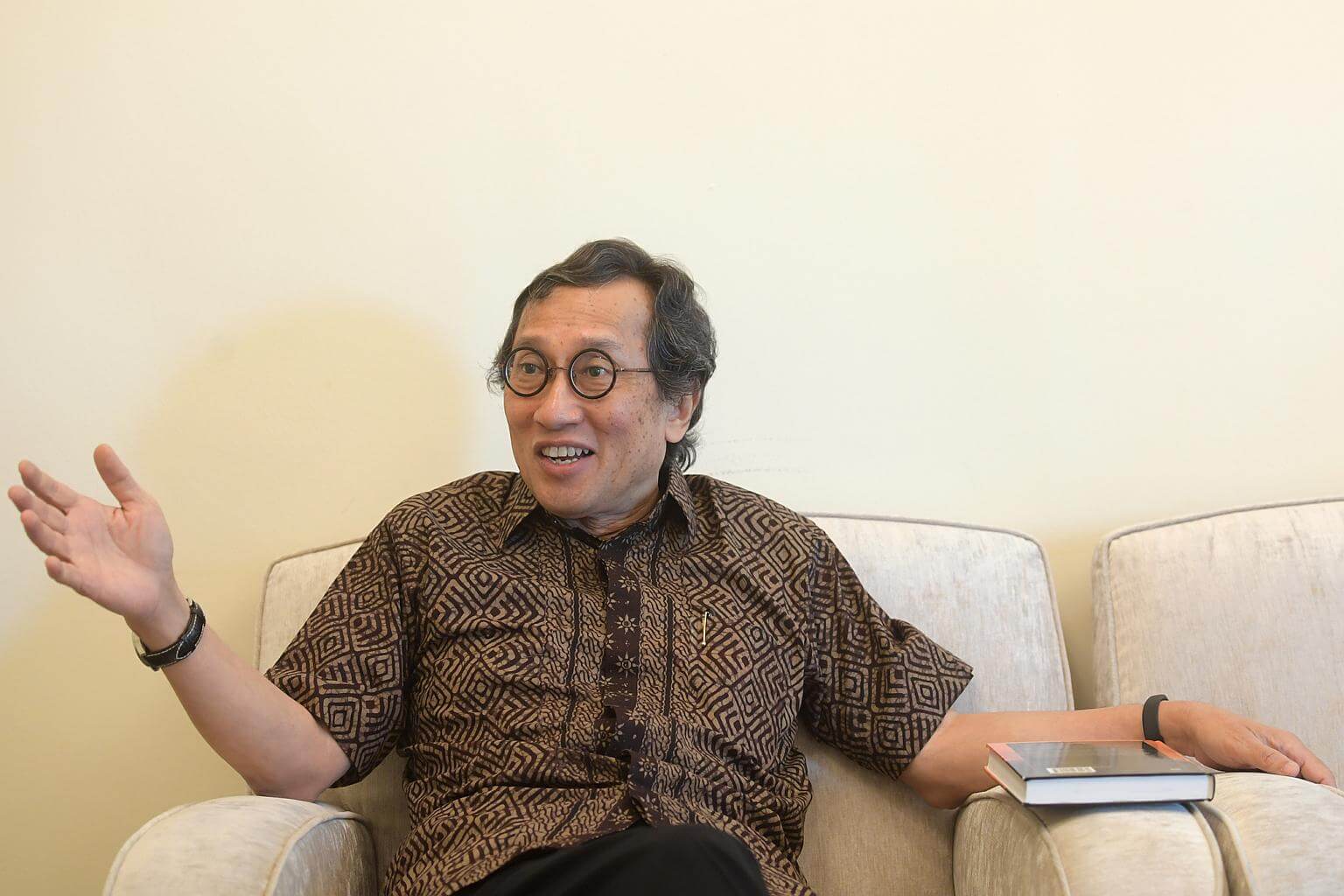Staying aware of foreign influence best form of defence for Singapore: Bilahari
Sign up now: Get ST's newsletters delivered to your inbox

Retired diplomat Bilahari Kausikan hopes that Singapore’s citizenry will be more mindful of foreign countries trying to influence local politics by playing on ethnic and religious identities.
ST PHOTO: JAMIE KOH
Foreign countries will try to influence politics in Singapore by playing on ethnic and religious identities, and the best defence is to have a citizenry that is aware that this is happening, retired diplomat Bilahari Kausikan said yesterday.
He was speaking at a forum on ethnic identity and culture organised by the Institute of Policy Studies (IPS) and OnePeople.sg, where experts spoke about the challenges to Singapore's racial harmony.
For Mr Kausikan, foreign attempts at influencing Singapore's identity politics are among them. At 53 years old, the Singapore identity is real but malleable, said the former permanent secretary for foreign affairs. "Our identity, based in the idea of multiculturalism and meritocracy, is under pressure. There are centrifugal forces trying to pull us apart," he said.
In particular, he cited China's attempts to "assert the Chinese identity on multiracial Singapore".
Mr Kausikan made a similar point last month at a conference on Chinese diplomacy, in a speech which drew criticism from China's Ambassador to Singapore Hong Xiaoyong.
Repeating a point in that speech, Mr Kausikan said yesterday that Chinese influence operations aim to sway people abroad to China's positions, thereby advancing its interests and promoting its influence.
Singaporeans must stay vigilant when Beijing tries to manipulate them, he said. "The system we have has to be continually defended. There will never be a time when you can say, 'Job done, we don't have to worry about it.' The best defence is if you are aware of it."
Speaking earlier at the forum, Singapore Management University associate law professor Eugene Tan raised other concerns about Singapore's multiculturalism.
He noted that national policies relating to ethnicity have maintained racial consciousness in Singapore. This is important as it helps people define who they are. But if there is excessive racial consciousness, it will stifle nation-building, he said.
"Ultimately, it is important for us, even as we seek to promote and strengthen ethnic identities, to remember that it is important to build that over-arching civic identity, of being a Singaporean citizen."
Speaking on the racial categories - Chinese, Malay, Indian and Others - Eurasian Association president Alexius Pereira said the recognition of various races helps maintain peace and cohesion.
"Recognising you exist means we have space for you, we will set aside space for your mosques, temples and churches," he said.
But there are also consequences of relying heavily on the framework, he said, for example, it constantly reminds some people that they belong to a minority group, which can cause discomfort.
Also weighing in on multiculturalism was former senior minister of state for foreign affairs Zainul Abidin Rasheed. He said existing laws and policies on race, like group representation constituencies and public housing race quotas, all point to the fact that multiculturalism is a work in progress.
And with the rise of divisive rhetoric and religious fundamentalism, it has become more important for Singaporeans to make a conscious effort to embrace the Singaporean identity alongside their ethnic or religious identities, he added.


